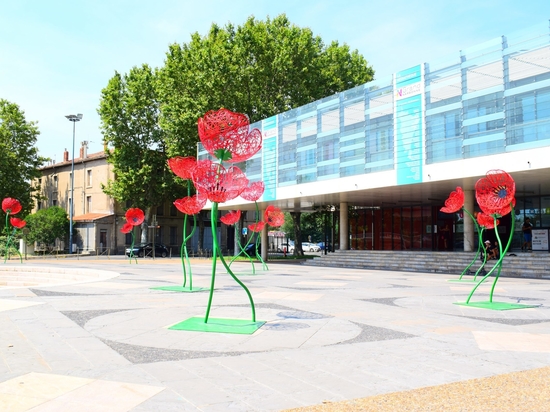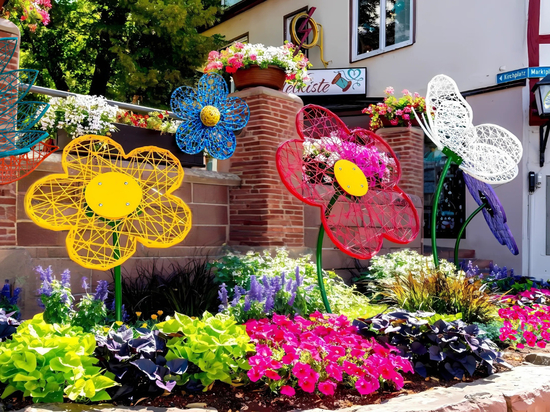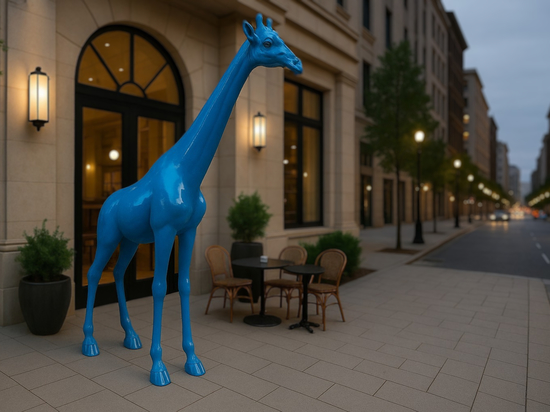
#Product Trends
Designer large plant pots - an example from the town of Attnang-Puchheim
large plant pots
Large plastic pots appear more and more often in towns and cities, mainly because the plants planted in them beautify the space. Distinguishing XXL containers often become the hallmark of a given place. A perfect example is the Austrian town of Attnang-Puchheim. The large plastic pots located there in one unique color create a harmonious coherence and a designer look.
Large plastic outdoor pots
Plastic pots are the top pick when it comes to outdoor use. Durable plastic is perfect for changeable weather conditions. In hot and sunny summer or cold, snowy winter, the pots retain their color. Additionally, they are easy to maintain and much lighter than their concrete or wooden counterparts. Thanks to all these advantages, they will fulfill their role for many years, remaining in a great condition. The plastic planters can impress with their durability under one condition – the chosen material, should be tested and top-quality. It is worth taking an interest in large polyethylene pots from Terraform. Polyethylene is durable, resistant, and perfectly recyclable.
Thanks to the polyethylene used in the production process of large pots the choice of colors is endless. To attract attention and enliven the surroundings, usually, strong and vivid shades are chosen. Yellow, Green, Orange, Red, Blue are just some of the options available. However, in addition to the basic variants, there are also quaint proposals that will make the plastic pot take on a designer character. This category includes classic black and white as well as shades of gray, but to really stand out, it is worth choosing a variant that resembles Corten steel. Chocolate brown is not uniform, which allows to achieve a very similar visual effect to the corten popular among architects. It is the perfect combination of aesthetics and ease of maintenance.
Attnang-Puchheim focuses on consistency
Large corten-colored plastic pots were chosen by the austrian town of Attnang-Puchheim. Along the main street, Marktstraße, one can spot 15 pieces of Gianto Sito and 50 classic Gianto. Thanks to this approach, the most representative part of the town has gained coherent urban pots that allow to launch additional greenery into the center. However, this is not their only task.
Flower pots instead of railings
The location of the plastic pots has been planned so that they not only have an aesthetic function, but also block the possibility of parking in places that are not intended for this. The central street of Attnang-Puchheim is woonerf, a modern public space in which the height difference between the road and the pavement is eliminated. The lack of architectural barriers is a great convenience for pedestrians, people on wheelchairs, mothers with prams or cyclists, but also a temptation for drivers to leave their cars outside the designated parking space. Pots placed on the pavement at regular intervals eliminate the need for barriers or bollards and, importantly, do not limit the movement of residents in any way.
Dining alfresco in green surroundings
Outdoor dining is an inseparable part of restaurants. In the case of woonerf, to increase the security of guests, it is worth separating the premises from the street, which is often very close to the tables. In Attnang-Puchheim, the large Gianto Sito pots ensure the well-being of the eaters. The large size of the containers (the diameter of the pot is 180 cm) separates vehicles from the pavement cafe, and at the same time launch a green, plant screen, which additionally creates a sense of privacy.
Large pots - aesthetics and functionality
The project from the Austrian Attnang-Puchheim paves the way for other cities and towns. Large pots can bring many advantages. First of all, a wide selection of colors - in this case, the focus was on consistency and a designer presence, i.e. the unique corten color. Secondly, the plant containers are a clever signal that shows drivers where vehicles should not be parked, which is extremely important, especially on woonerf streets. Thirdly, they perfectly separate zones, e.g. a pavement cafe from the road. Finally, they provide the option of additional greenery, which is so much needed, especially in the main points of the city.










